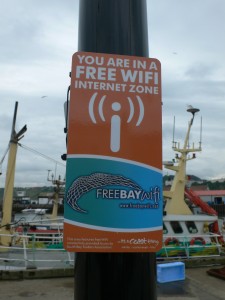I was on a rare Tuesday night out with Ben our Head of Network Operations and Dean, Chief Technical Architect. Ben was up from the NOC in Ipswich for a meeting so we combined business with pleasure and had an evening discussing technical strategies and roadmaps for The Timico Group.
The output will reveal itself in due course but the nature of such evenings, spent in Tequila’s Mexican Cantina in Lincoln, is that the conversation lead to other subjects.
On this occasion it was magnolia paint. Dean said it was a completely boring subject and that there was nothing really to talk about. An earlier career spent in RAF accommodation had coloured his judgement on the subject.
My take was that magnolia paint is in itself a complex subject with many facets. After all you can get gloss magnolia, matt magnolia, emulsion, satin, small pots, large pots, industrial sized pots etc etc. It is also quite possible that there are many different shades of magnolia.
The point is that there are probably experts in magnolia paint who can advise the mere mortals and colour blind amongst us as to which tin of magnolia we need.
Now compare magnolia paint with your internet connection. You have probably taken both for granted but in reality a broadband internet connection is a complex animal. What sort do you go for? Is the free one that comes with a phone line the one for you or do you actually pay good cash for something different? Is there a difference? How do you decide?
Let me tell you even if you think you know what you are talking about it is not easy. It’s like the first time I had my own business and needed to choose a mobile phone tariff. There were so many on offer I basically had to take a pin and stick it in the pricelist and hope that that one was the right one for me. Someone had always made the choice for me before.
Not every business has the luxury of employing staff to specifically choose on your behalf. In fact most businesses don’t. They need to team up with someone who can advise them and who they can trust.
The fact is I leave the choice of magnolia paint to an expert, in this case my wife. My wife knows nothing about internet connections so in that case she asks me.
PS, Ben and Dean also wanted me to write on the subject of croquet. There are around 3,500 members of the Croquet Association spread amongst approximately 165 clubs. The Association was founded in 1897 so it is still taking a little while to take off! If you want to know more go to http://www.croquet.org.uk/. They are looking for support.
For internet connections go to http://www.timico.co.uk/. They want your business.

